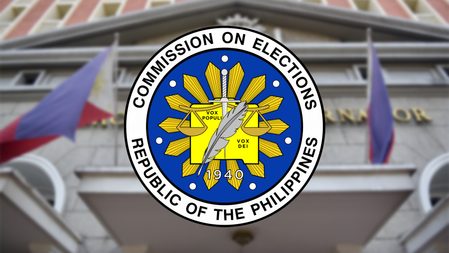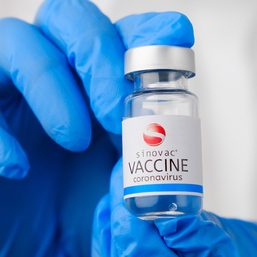SUMMARY
This is AI generated summarization, which may have errors. For context, always refer to the full article.

The Commission on Elections (Comelec) has released the guidelines for the conduct of campaigns for elective posts in the 2022 polls.
Comelec Resolution 10730, promulgated on November 17, contains the implementing rules and regulations (IRR) of Republic Act 9006 or the Fair Election Act in connection with the 2022 exercise.
The poll body comes out with a new resolution on the IRR of the Fair Elections Act every election season. However, the new document for the 2022 exercise is different for two reasons:
- The introduction of more regulations on social media campaigning
- The inclusion of guidelines that were crafted as a result of the COVID-19 pandemic
New rules
Microtargeting ban
The Comelec will prohibit the microtargeting of voters in the 2022 polls. Microtargeting is the practice of analyzing a person’s online usage to serve them ads that specifically cater to their preferences.
“Microtargeting of electoral ads shall not be allowed, provided that electoral ads can be targeted using only the following criteria: geographical location, except radius around a specific location; age; and gender; provided further that contextual targeting options may also be used in combination with the above-mentioned criteria,” the resolution reads.
It is unclear how exactly the Comelec will go after politicians who use microtargeting tactics in their online campaigns, but spokesman James Jimenez said on November 5 that this would be done in cooperation with social media platforms.
Cambridge Analytica, a defunct British data analytics firm that drew international condemnation for allegedly harvesting personal data of Facebook users, was said to have used microtargeting tactics to win the 2016 United States presidential election for Donald Trump.
Period to register online pages
The poll body did not impose a deadline for candidates to register their official social media pages for the 2019 elections. That’s not the case for the 2022 polls.
“Each registered political party/coalitions and candidate shall register with the Education and Information Department of the Comelec the website name and web address of all platform-verified official accounts, websites, blogs and/or other social media pages of such political party or candidate within 30 days from the last day of the period for the filing of the certificate of candidacy,” the resolution read.
Unlike the 2019 election guidelines on campaigning, the new resolution also specifies that “only verified accounts, websites, blogs, and/or social media pages may run electoral ads, and boost or promote electoral ads.”
Resolution 10730 is also clear: paid digital influencers and online content creators who use their platforms in favor or against a candidate should report to the poll body the payments for their online posts. The Comelec first introduced this rule in 2019.
Conduct of e-rallies
As the pandemic continues to cast a shadow on in-person campaigning, the Comelec has decided to lend its social media channels to national aspirants.
Aspirants for president and vice president, as well as political parties, will get 10 minutes airtime each; senatorial hopefuls and party-list groups will each be given three minutes.
The raffle of e-rally slots will be conducted on live television on January 8, 2022.
Candidates and parties may also hold their own e-rallies, which include livestreaming on aspirants’ social media platforms. The Comelec will require them to submit a recording within 72 hours after the online rally is held.
Debates
The Comelec-led presidential debates in 2016 were a game changer, and the poll body will replicate them in the 2022 elections.
For the first time, the resolution on the IRR of the Fair Election Act included the conduct of national debates – three rounds among presidential aspirants, and at least one for vice presidential hopefuls.
National TV and radio networks shall sponsor these debates.

Higher discounted rate for TV, radio ads
Comelec guidelines say media outlets “shall give registered political parties and bona fide candidates a discounted rate for their election propaganda from the average of the published rates charged in the last three calendar years prior to the elections.”
For television ads, that’s 50%, up from the 30% in 2019; for television, it’s 40%, up from the 20% the last general elections.
“Media outlets may give discounts higher than the above-mentioned rates, provided that the discount given to one candidate shall be the same given to other candidates for the same position,” the poll body added.
Compliance with COVID-19 protocols
Like past Comelec resolutions for the 2022 polls, guidelines on campaigning are hounded by the ghost of the coronavirus.
“It shall…be unlawful for any candidate, party, or any person to act in a manner that violate the minimum health and safety protocols, and other applicable guidelines prescribed by the Comelec and the Inter-Agency Task Force on Emerging Infectious Diseases,” the resolution read, under the section on prohibited acts during public campaign activities.
Campaign organizing staff of candidates must also submit to the Comelec an affidavit of compliance with health protocols, within 24 hours after an in-person campaign activity is held.
The poll body warned that failure to do so makes them liable under Republic Act 11332 or the Mandatory Reporting of Notifiable Diseases and Health Events of Public Health Concern Act.
Pollsters also reminded to practice physical distancing and anti-virus etiquette with voters when conducting the exit polls on election day.
Same old, same old
Still, many guidelines on campaigning for the 2022 polls are similar from elections past.
These include:
- How much a candidate may spend on their campaign for every registered voter
- What constitutes as lawful and prohibited forms of election propaganda
- Cap for airtime duration for broadcast advertisements
- Reporting requirements by mass media entities, contractors, and business firms for campaigning payments
The full guidelines can be accessed below:
Any violation of the guidelines in the Comelec resolution “shall constitute an election offense,” which means violators can be punished with at least one-year imprisonment and disqualification to hold public office.
(Don’t get your hopes up, though. This 2019 piece explains why it’s complicated for the Comelec to go after election offenders, such as those who buy votes, for example.)
The campaign period for national aspirants is from February 8, 2022 to May 7, 2022. Local aspirants, meanwhile, may begin campaigning on March 25, 2022. – Rappler.com
Add a comment
How does this make you feel?












![[Rappler’s Best] US does propaganda? Of course.](https://www.rappler.com/tachyon/2024/06/US-does-propaganda-Of-course-june-17-2024.jpg?resize=257%2C257&crop=236px%2C0px%2C720px%2C720px)



There are no comments yet. Add your comment to start the conversation.